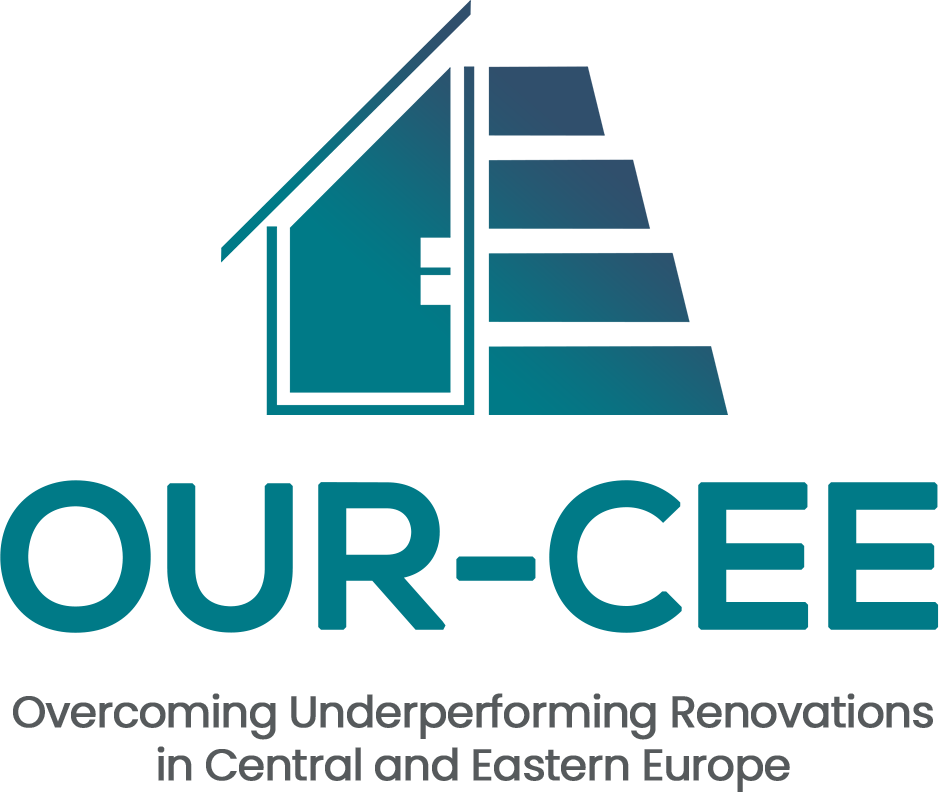OUR-CEE addresses the issue of underperforming renovations on public buildings and how to overcome it. It focuses on four CEE countries traditionally challenged by low renovation ambitions and poor quality of the building stock. Public buildings, which are expected to lead the way in deep renovation, have been undergoing renovation for many years in CEE – but a significant proportion of this renovation is not achieving appropriate energy savings.
The findings of the project will support the acceleration of deep renovation in CEE and achievement of the EU’s energy efficiency targets.
OUR-CEE aims to identify the reasons behind underperforming renovations of public buildings and build capacity in relevant public institutions, both for upgrading these renovations and for avoiding these issues in the future. It will also pilot renovation roadmaps, including financing plans, for several public buildings in the project countries, and promote knowledge exchange with ongoing projects and between partner countries.
The findings of the project will support the elaboration of upcoming National Building Renovation Plans, expected by June 2024.
Project duration: 01.12.2023 - 31.03.2026
Output I
Improved understanding of underperforming renovations among decision-makers
| Elaboration of national assessment reports for each country |
Output II
Planning resources for upgrading renovations to close the energy performance gap for public buildings.
| Renovation roadmaps for selected public buildings |
Output III
Increased institutional capacity for upgrading underperforming renovations and avoiding them in the future.
| Renovation trainings & study trip |
Output IV
Increased social awareness of underperforming renovations and the need for deep renovation.
| Elaboration of guidance on overcoming shallow renovation |
Why OUR-CEE is needed in member countries

Bulgaria

The renovation of Bulgarian public buildings has been challenged by the low ambition, procurement at lowest cost, and time constraints for implementation. The majority of renovations target the bare minimum in terms of energy efficiency, and the nature of public renovation funding means that future upgrades are not financially feasible, creating a lock-in effect. Thus, most renovations are underperforming, and public authorities have no proven approach to overcome the resulting negative effects, nor to conduct future renovations in a more sustainable stepwise manner.

Croatia

Despite a first renovation wave on public buildings, by 2020 less than 10% of public buildings had been renovated. Due to low ambition, already-renovated public buildings fall short of expected energy savings, but are dismissed from further action as already “energy renovated” (not reflective of reality). The reasons behind this underperformance are unknown, and public sector employees lack a general understanding of building life-cycle costs, leading to the abandonment of renovation projects with high investment costs.

Poland

The renovation of Poland’s 14.2 million buildings is one of the country’s greatest infrastructural challenges. Public buildings have a special role in advancing building energy-saving potential, but the performance of renovations to date is often poor, generating limited energy savings and payback times as long as 65 years. This underperformance is strongly driven by the limited capacities of municipal staff to efficiently plan, implement, finance and monitor deep renovations.

Romania

The achievement of high-performing renovation of public buildings in Romania is challenged by the low capacity of public institutions and the lack of data on buildings and their energy use. This leads to insufficient leadership in public building energy efficiency interventions, resulting in low renovation rates; the most recent estimates show that only 9% of the floor area of commercial and public buildings was renovated by 2020, and that only fraction of planned energy savings were being achieved in renovations.




